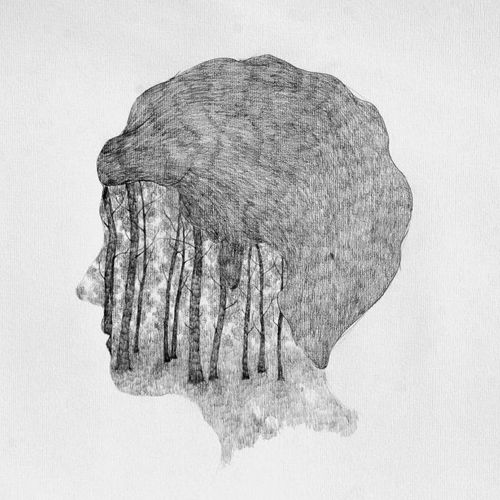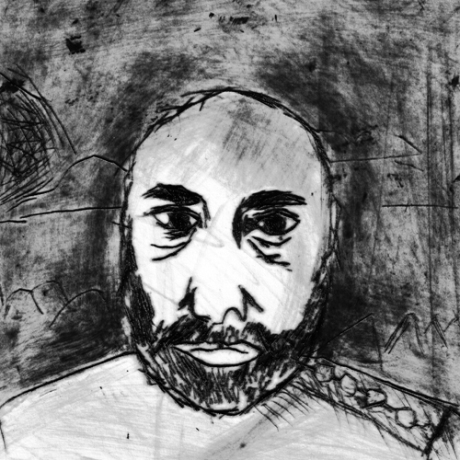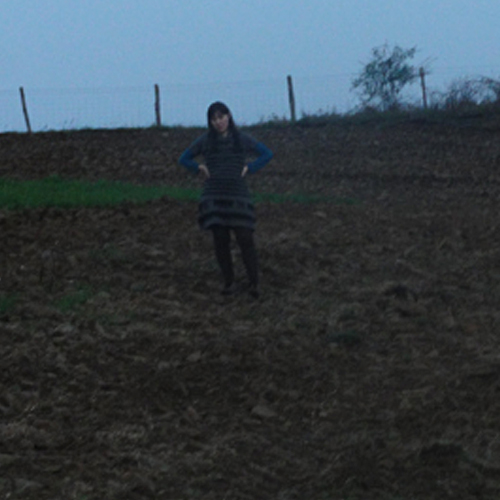Inner Fields
DELPHINE DORA, BRUNO DUPLANT
(Wild Silence 2014)
Review by Flavien Gillié
La figure de l’enfance, de Marguerite Duras à Delphine Dora et Bruno Duplant.
L’enfance traverse l’oeuvre de M.D., du petit frère à Ernesto, en passant par le jeune aviateur anglais, 20 ans, si jeune pour mourir.
Qu’on repense à l’été 80, commande de Serge July d’articles pour le journal Libération, les descriptions que donne M.D. de Trouville en été pluvieux, les colonies de vacances, les enfants sur la plage, en groupe, tous sauf un.
C’est l’image qu’on a dès le début de l’album, fulgurances enfantines, rencontre des enregistrements de terrain et des manipulations de ceux-ci par Bruno D., et des notes délicates du piano de Delphine D. (M.D. jouait du piano, elle aimait la musique).
Duplant, Dora, Duras, tant de similitudes dans les patronymes, comme un glissement permanent de l’un vers l’autre, de l’une vers l’autre, tout dans cet album fait écho et sens dans une continuité de l’oeuvre durassienne, qui passait souvent d’un art à l’autre, un film préfigurant un roman, parfois l’inverse. C’est bien ce que l’on retrouve ici dans la complicité des deux artistes, des espaces de rencontre, d’accueil, une synesthésie qui passe par l’écriture, la composition et l’écoute.
L’enfant de l’été 80 est seul, il ne sait pas qu’il est vu par M.D., à la cinquième piste le titre rajoute à la solitude une opacité brumeuse, cherche à l’éloigner de nous, les pas du départ sont vite lointains, ne restent que les vagues, une harmonique et le piano, piano qui évoque alors le lieu du dedans, l’attente d’un retour improbable.
L’album se finit sur cette enfance, les vagues (Waves), un enfant dit “regardez”, voudrait montrer que quelque chose arrive, sans chercher à savoir quoi, nous rappelle que l’événement, c’est ce qui s’est déjà passé, et cet album en est une trace, une présence très forte.
[Bruno Duplant, drawing by his son Melvil]
[Delphine Dora]
Translation to English -by Sismophone-
The face of childhood, from Marguerite Duras to Delphine Dora and Bruno Duplant.
M.D.’s opus embraces childhood, from the little brother to Ernesto through the young english aviator, 20 years old, so oyung to die.
Let us think back to summer ’80, an order of articles from Serge July for Liberation newspaper, the way M.D. describes Trouville during this rainy summer, the summer camps, the kids on the beach, grouped, except one.
This is the picture one has in mind as of the start of the album, childish fulgurations, meeting of field recordings and their manipulation by Bruno D., and the delicate notes of Delphine D.’s piano (M.D. also used to play the piano, she loved music).
Duplant, Dora, Duras, so many similarities in patronymics, as a permanent shift from him to another, from her to another, everything in this album echoes in a meaningful way through the opus of Duras, who often slid from one art to another, a movie prefiguring a novel, sometimes the other way around. It is precisely what one finds here in this complicity of the two artists, spaces for an encounter, a welcoming, a synesthesia manifesting through writing, composing and listening.
The child of summer ’80 is alone, he does not know he is being watched by M.D., at the fifth track, the title adds to lonelyness a misty opacity, seeks to remove him from us, the steps of the departure quickly faint, only waves remain, one harmonic and the piano, piano then evoking the inside locus, the expectation of an unlikely return.
The albums ends with this childhood, the waves (Waves), a kid says “watch”, would like to show something coming, without seeking to know what, recalls us that the event is what has already happened, and this album is a trace of that, a very strong presence.
Bruno Duplant discography
Delphine Dora website
Wild Silence website




